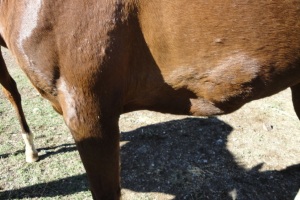 Perseveranceendurancehorses Blog
Perseveranceendurancehorses BlogPOSTED BY PERSEVERANCE ⋅ 13 MARCH 2012
African Horse Sickness is a disease endemic to certain parts of Africa. It is thought to be a Zebra virus carried by midges. It can be a a serious disease with high mortality, but many horses do recover. There is a vaccine but its effectiveness is hotly debated. Standard veterinary treatment, which is aimed at lowering fever with anti-inflammatories such as bute and treating potential secondary infection with antibiotics, does not produce good results generally. Consequently, horse owners have been looking at other ways of dealing with it.
Supportive nursing is vital as the horses get extremely ill. This is one horse that we dealt with successfully in the Autumn of 2011, here at Perseverance in the Karoo. In the interest of sharing information, this is what we did...
Fire’s treatment for AHS, May 2011
Fire is a purebred Arabian broodmare, a former endurance horse, vaccinated for AHS by vets and the vaccinations recorded in her passport over many years. She had a foal at foot and was two months in foal again.
During this outbreak, the Perseverance broodmares in the veld were checked daily. Fire presented with fever in early May. She was treated with an oral dose of MMS. Often this is sufficient to stop a mild case from progressing. There were a few other mares with fever for whom this was sufficient. In her case it was not.
The next day she was given IV 6 ml MMS (mixed with 30 ml 10% strength citric acid solution, allowed to activate and further diluted with Ringer’s lactate) and left in veld with her herd. Next day she was no better, she would become fatigued after walking a short distance. We brought the horse box to her and transported her and her foal back to the farmyard. The swelling over her eyes was hard to the touch.
We restrained her and the foal in a small pen to prevent further fatigue. We blanketed her when the weather cooled. Her lungs continued to fill and she became very short of breath. She started lying down. I feared she would suffocate if it became any worse. I obtained a single dose of Salix from the vet and gave that. She found some relief and urinated. Body swelling and body pain worsened (as we would expect from the Salix), but I felt this was worth the extra time gained in this particular case, the lesser of two evils. We then moved her to a stable under an infrared lamp, and this is what she was given during the first, intensive, nursing period...
Read more here:
http://perseveranceendurancehorses.wordpress.com/2012/03/13/nursing-a-horse-through-ahs-african-horse-sickness/

No comments:
Post a Comment